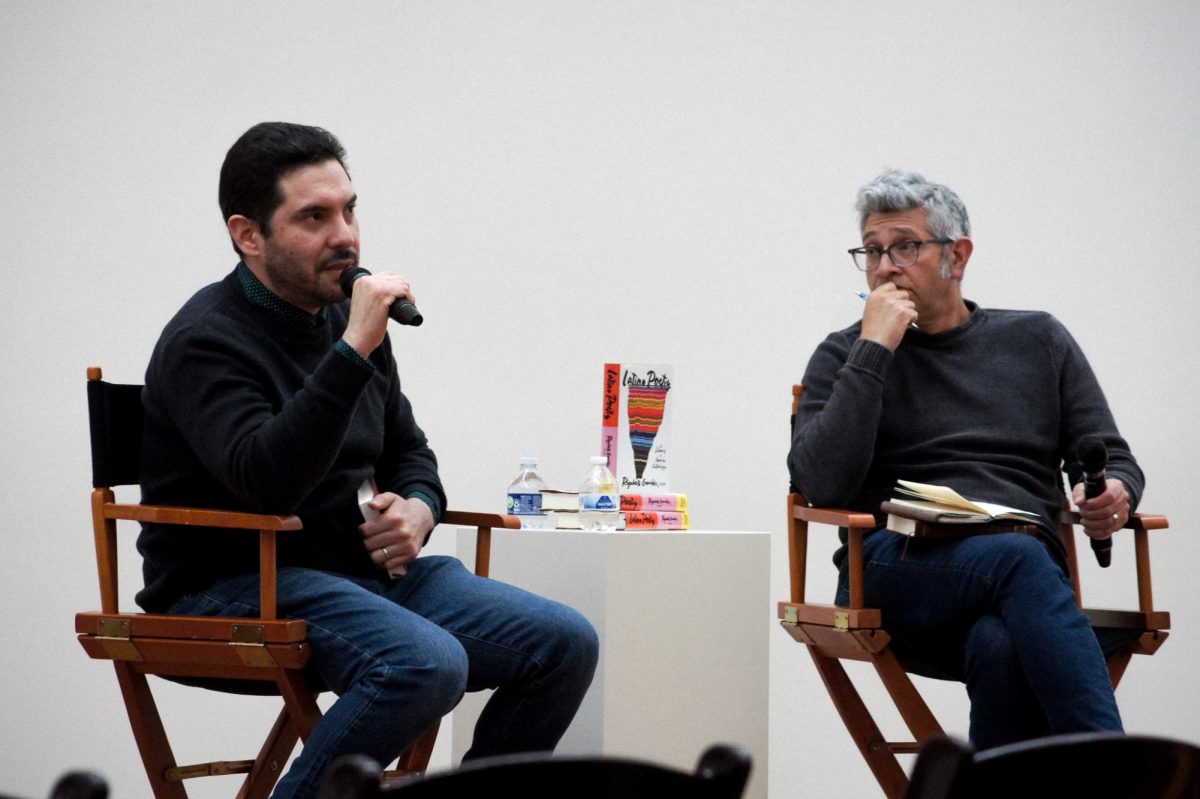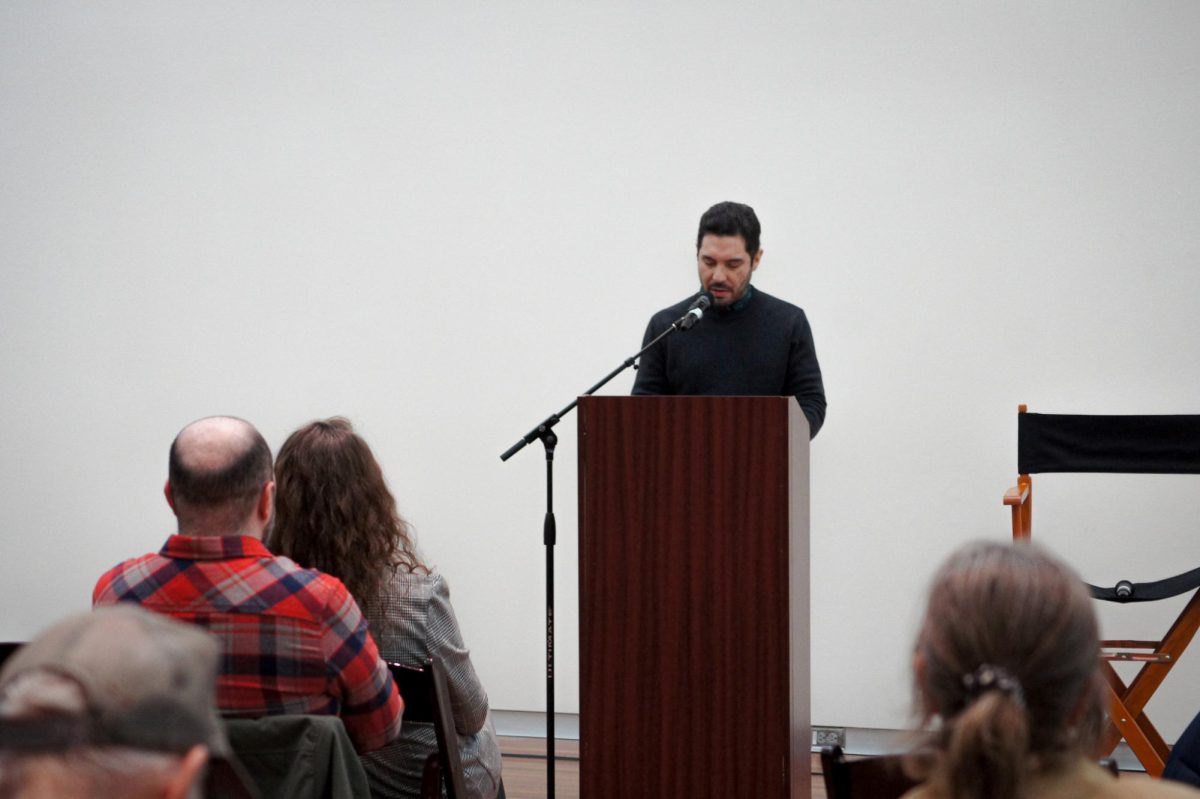Jose-Luis Moctezuma, a Xicano poet, celebrated the release of the Latino Poetry Anthology from the Library of America through a poetry reading at UMFA on March 20. Moctezuma spoke about three poets and works that he chose to read in honor of the Anthology.
The Latino Poetry Anthology consists of works by 180 poets from the 17th century to the present day. These include Lola Rodríguez de Tió, José Martí and Juan Felipe Herrera.
Moctezuma began the reading with a new six-part poem that he wrote that morning in response to the “salt 16” exhibit showcased at the UMFA. The lines from each section corresponded with a painting in the exhibit. The first section of the poem correlated with Arleene Correa Valencia’s painting, “The Marigold Flower.” Moctezuma wrote, “Blooms in marigold and gold blooms into a yellow more verdant and alive in the flowing valleys of Napa.”
Following the reading of his new poem, Moctezuma read three poems from the Anthology. These included Roberto Harrison’s “a grotesque sign of panamá with cooling shadow,” Rodrigo Toscano’s “Latinx Poet” and Vanessa Angélica Villarreal’s “A Field of Onions.”
During the program’s Q&A section, Moctezuma was joined by Professor Michael Mejia, director of creative writing at the University of Utah, to discuss his works and why he chose them. Mejia began by asking why he chose the three poets and works that he did.
“Roberto is very much a mystic, spiritually-minded poet,” Moctezuma said. “I love the virtuosity, the lyric for its own sake and I think Roberto as a Latinx poet he embodies that to me.”
Moctezuma commented on Rodrigo Toscano and how he contrasts Harrison’s work. “Rodrigo Toscano is the opposite in many ways. He is very much political. He is interested in the radical politics of the day.”
Mejia asked Moctezuma about “Latinx Poet” by Toscano relating to the choices that he makes in the poem with the ending of the root word “Latin.”
“The evolution of ‘Hispanic’ to ‘Latino/Latina’ with the slash shows that it’s constantly under construction because identity and race has this intersectional lens that we have to think through and around these terms, showing how unstable it can be,” Moctezuma said.
“Rodrigo sees Latinidad or Latinx as something that can be problematic and could be weirdly paradoxically restricted,” Moctezuma said. “He’s kind of poking fun of inclusivity by being as broad as possible.”
When speaking about Villarreal, he said she’s part of the new generation of poets who are “better than the obvious,” quoting Villarreal’s “A Field of Onions.” He praises Villarreal, saying that as a Latinx poet, their work is expected to be “sellable,” and he sees her as a poet who works against that.




